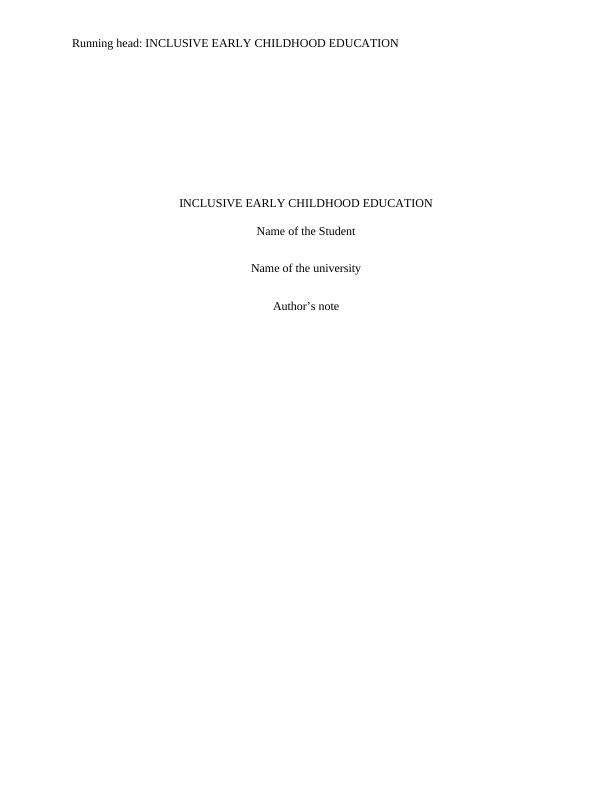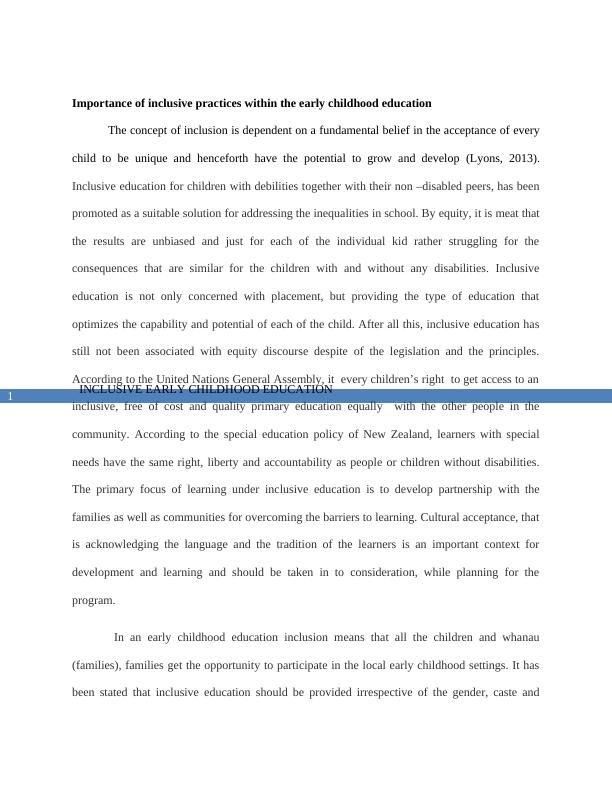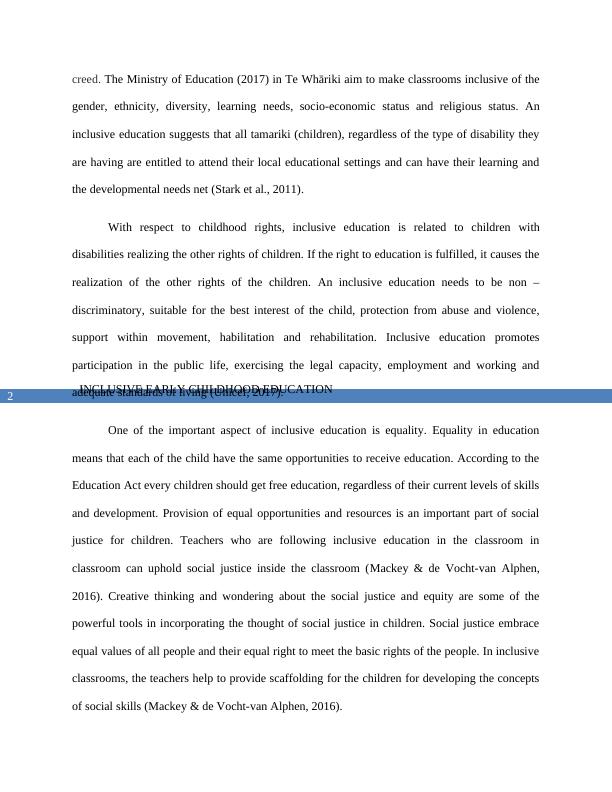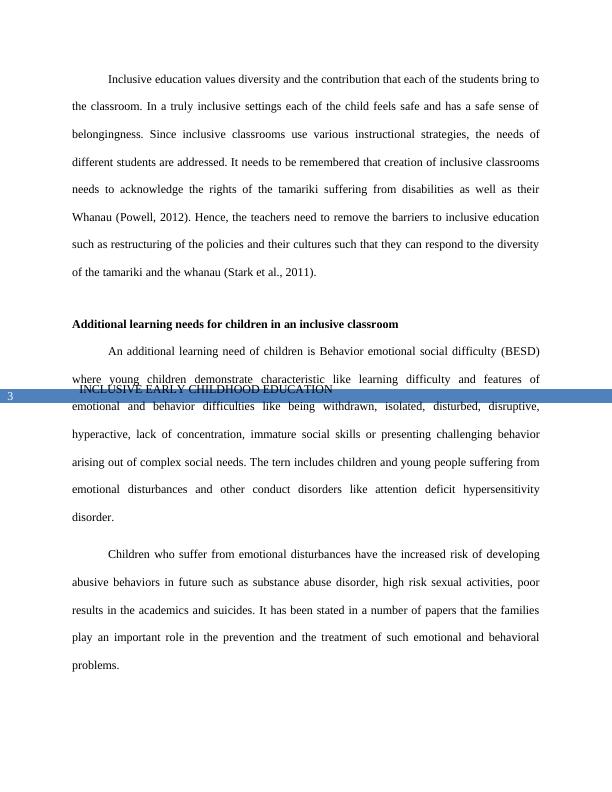Inclusive Early Childhood Education | Report
This paper explores the attitudes and understandings of parents of non-disabled children towards the attendance and inclusion of children with disabilities and their families in early childhood settings in New Zealand.
11 Pages2912 Words22 Views
Added on 2022-09-07
Inclusive Early Childhood Education | Report
This paper explores the attitudes and understandings of parents of non-disabled children towards the attendance and inclusion of children with disabilities and their families in early childhood settings in New Zealand.
Added on 2022-09-07
ShareRelated Documents
End of preview
Want to access all the pages? Upload your documents or become a member.
Inclusion in Early Childhood Education and Care: Principles and Practices
|7
|1196
|270
INCLUSION IN EARLY CHILDHOOD SETTINGS
|12
|3488
|26
Inclusion in Special Education: Models, Strategies, and Benefits
|15
|3790
|337
Early Childhood Education and Care: Importance of Inclusion, Strength-Based Approach, and Effective Team Collaboration
|12
|3252
|249
Inclusive Education in Early Childhood Settings
|12
|3591
|479
Inclusion in Early Childhood Education
|13
|2851
|1




